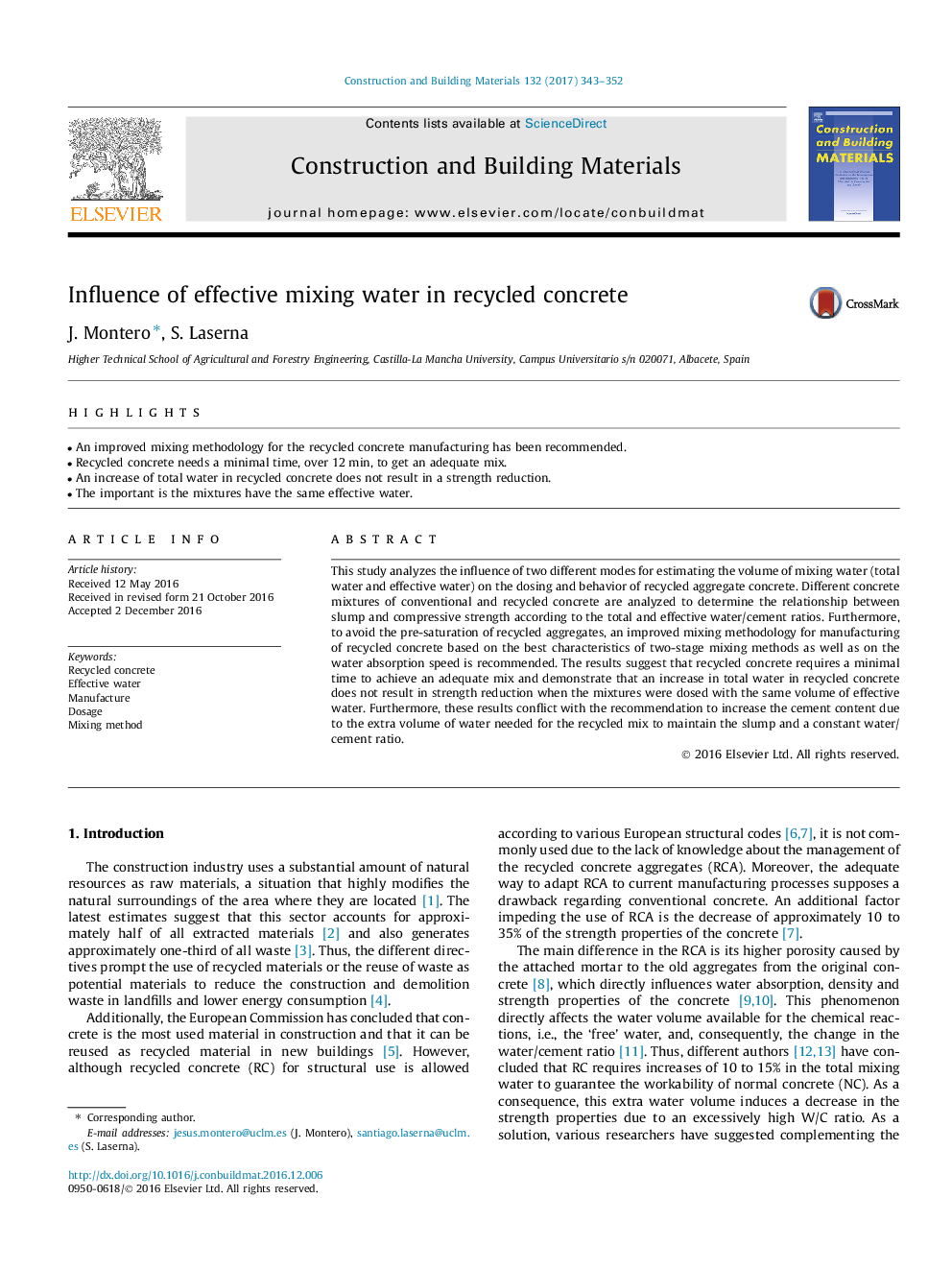| Article ID | Journal | Published Year | Pages | File Type |
|---|---|---|---|---|
| 4913836 | Construction and Building Materials | 2017 | 10 Pages |
Abstract
This study analyzes the influence of two different modes for estimating the volume of mixing water (total water and effective water) on the dosing and behavior of recycled aggregate concrete. Different concrete mixtures of conventional and recycled concrete are analyzed to determine the relationship between slump and compressive strength according to the total and effective water/cement ratios. Furthermore, to avoid the pre-saturation of recycled aggregates, an improved mixing methodology for manufacturing of recycled concrete based on the best characteristics of two-stage mixing methods as well as on the water absorption speed is recommended. The results suggest that recycled concrete requires a minimal time to achieve an adequate mix and demonstrate that an increase in total water in recycled concrete does not result in strength reduction when the mixtures were dosed with the same volume of effective water. Furthermore, these results conflict with the recommendation to increase the cement content due to the extra volume of water needed for the recycled mix to maintain the slump and a constant water/cement ratio.
Related Topics
Physical Sciences and Engineering
Engineering
Civil and Structural Engineering
Authors
J. Montero, S. Laserna,
